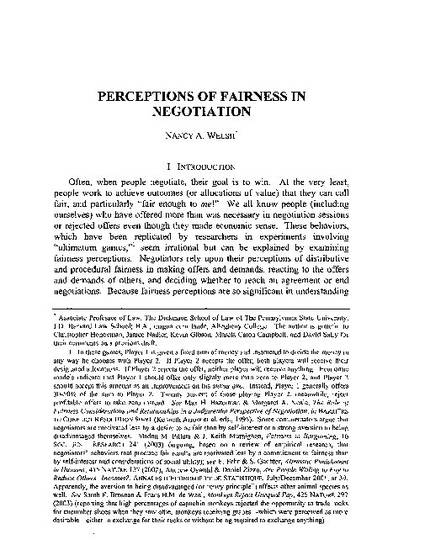
In all of negotiation, there is no bigger trap than "fairness." This chapter from the Negotiator's Fieldbook explains why among multiple models of fairness, people tend to believe that the one that applies here is the one that happens to favor them. This often creates a bitter element in negotiation, as each party proceeds from the unexamined assumption that its standpoint is the truly fair one. For a negotiation to end well, it is imperative for both parties to assess the fairness of their own proposals from multiple points of view, not just their instinctive one – and to consider the fairness of their negotiation procedures as well as of their substantive proposals. Though the fairness of negotiation procedure appears to exercise greater influence upon some negotiators than others, perceptions of procedural fairness generally result in increased perceptions of substantive fairness, increased compliance with negotiated results, improved relations between the negotiators and perhaps even a reduced need to engage in the sort of face saving that can result in choices that are not in negotiators' economic self-interest.
Available at: http://works.bepress.com/nancy-welsh/46/
